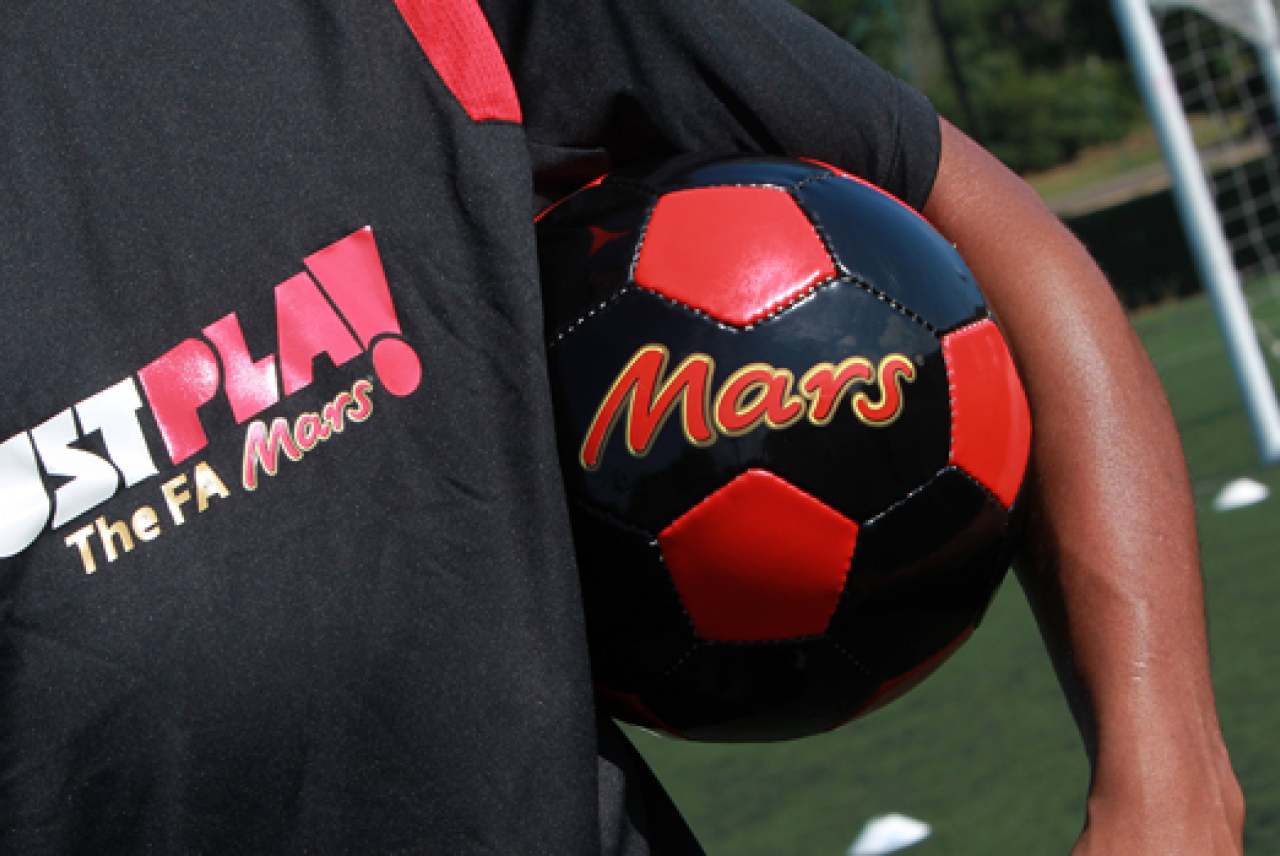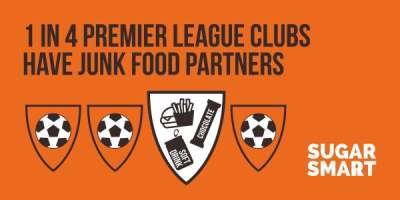“Childhood obesity is at an all-time high so it is with significant concern that we see the UK’s football associations, leagues and some football clubs continuing to partner with companies that are known for producing high fat, sugar and salt products,” says Matthew Philpott from Healthy Stadia, which works with sports clubs and sports authorities to develop healthier lifestyles.
“We are asking football associations, leagues and clubs not to enter into new partnership deals with high fat, sugar and salt brands as a commitment to protect children’s health, in particular partnerships with energy drinks brands and high sugar ‘sports drinks’ brands,” says Philpott, adding that:
“As the highest participation team sport in the country, it’s time football protects children against the marketing of unhealthy foods and drinks and re-thinks its commercial partnerships to address the state of our children’s health.”
Whilst Philpott recognises the good work done by the Premier League and other football leagues and clubs to increase levels of physical activity among children and educate them on the importance of healthy eating, he still remains sceptical:
“Sponsorship with high fat, sugar and salt brands and the resulting mixed messages do much to undermine this good work,” believes Philpott.
“It is worth noting that the calorie content in a standard chocolate bar is the equivalent to the calories expended by a 14 year old boy walking the length of a football pitch 97 times. In addition, no amount of physical exercise will mitigate the damaging oral health effects of sugary products.”
The good news is that some football clubs are already responding positively to the child obesity crisis and have signed up to the Sugar Smart campaign.
Charlton Athletic football club and its caterers DNC are now rolling out a series of healthy eating measures, which is hoped will start to address the obesity crisis in its community of Greenwich where more than 40 per cent of children are either overweight or obese.
“Being Sugar Smart is very important for the club,” says Charlton Athletic FC Development Manager Lisa Squires.
“It gives us the opportunity to reach thousands of families in Greenwich to help educate local people on the long-term dangers of sugar. Hopefully together we can help people to make healthier choices.”
So why are junk food brands so keen to sign a football sponsorship deal?
“Junk food brands are desperate to reassure the public that they are good, responsible companies,” replies Barbara Crowther from Sustain’s Children’s Food Campaign.
“By deliberately associating themselves through sponsorship of sports, they can claim to be supporting exercise and a healthy lifestyle, when the reality is they are in the business of selling unhealthy foods that contribute to obesity and tooth decay. It’s a pure PR exercise.”
Crowther dismisses the argument that community sports and small clubs would collapse if junk food brands were no longer allowed to sponsor sport.
“The same argument was made about tobacco companies and sport years ago, and sports like Formula 1 are still going strong,” states Crowther.
“It’s simply not appropriate to suggest that eating chocolate is part of the lifestyle of an elite footballer,” continues Crowther.
“We think sporting bodies like the Premier League should instead adopt a clear policy of only associating themselves and accepting sponsorship from brands that reinforce healthy living and eating messages.”






